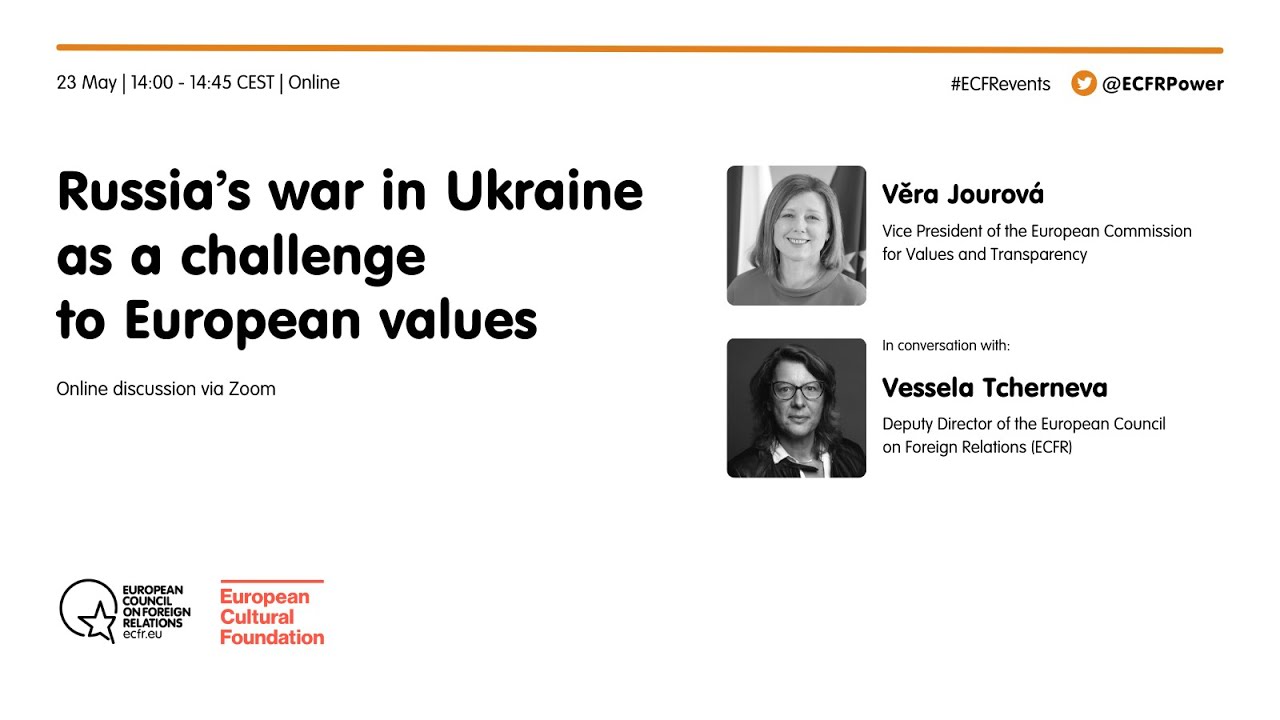Russia’s war in Ukraine as a challenge to European values
Guests
Věra Jourová, Vice President of the European Commission for Values and Transparency
Chaired by
Vessela Tcherneva, Deputy Director, ECFR
“When Russia invaded, it wasn’t just Ukraine being tested”, President Joe Biden declared during his visit to Warsaw in February. He was right in recognising the major implications this war has for the world – but he was wrong to suggest these implications are broadly similar for Europe, America, and other democracies. Given the everlasting question of whether Russia is or is not part of Europe, the complex (and often very tragic) history of Russia’s relations with its European neighbours, and its continuous soft power across much of the region, Russia’s war on Ukraine has become a major challenge for European culture and values.
The EU institutions and member states have taken various measures to respond to this challenge. For example, in February 2022 – in the immediate aftermath of Russia’s invasion of Ukraine – they banned the media outlets, Russia Today and Sputnik, along with many other Russian-speaking media outlets in the Baltic states. Later that year, the EU introduced regulations for technology platforms to combat online disinformation under the Digital Services Act. The European Commission also launched a pilot version of a media ownership monitor, which aims to enhance the transparency of news media ownership and control in EU countries.
But Europeans have also faced major dilemmas on how to deal with Russian culture, media, and people – according to the new European Sentiment Compass 2023 (“Culture clash: Russia, Ukraine, and the fight for the European public”), a joint initiative of ECFR and the European Cultural Foundation. In an effort to block Moscow’s influence, some have been tempted to encourage a boycott of Russian culture, to crack down on all Russian media, or to stop Russians from coming to Europe. But such reactions have major trade-offs in that they can clash with the very values that Europe stands for – those of openness, freedom of speech and cultural expression, and individual responsibility. In that sense, the risk for the EU is that it could also undermine its own values by reacting to the Russian challenge in a wrong way.
In what ways does Russia’s war in Ukraine constitute a challenge for European values? How should the EU institutions and member states respond? What instruments can they use? And what are the main dilemmas that they are facing?
We will discuss these issues with Věra Jourová, Vice President of the European Commission for Values and Transparency.

